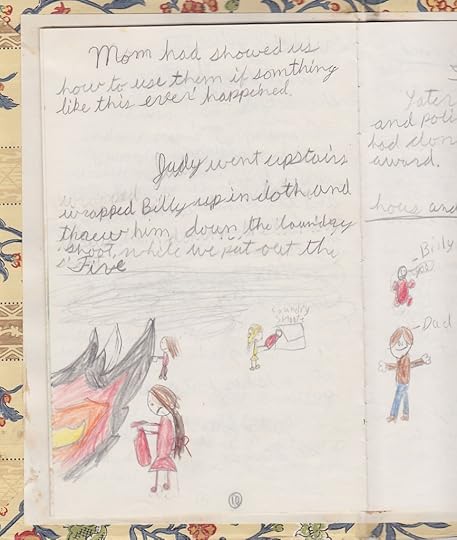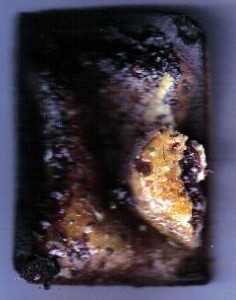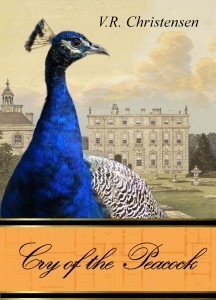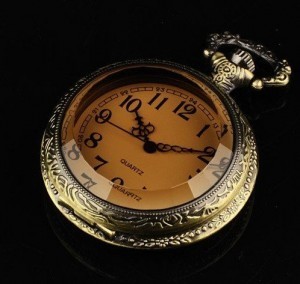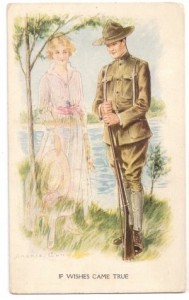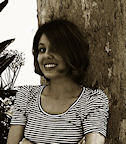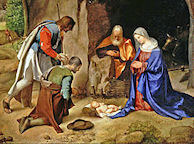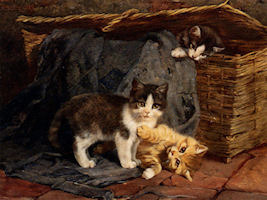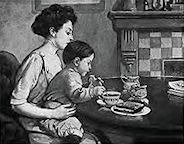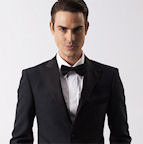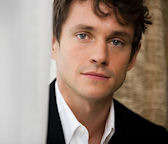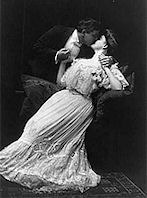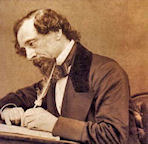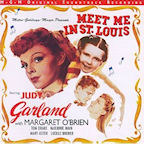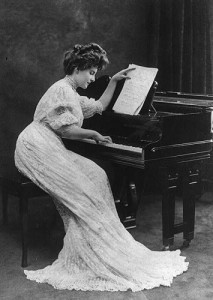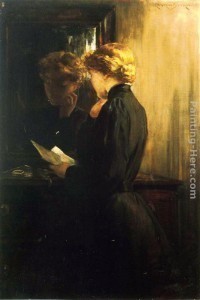V.R. Christensen's Blog, page 10
February 6, 2012
Judy, by Val-Rae Sanford, age 11
I'm accustomed to telling people that I've been writing seriously since I started my first book, Cry of the Peacock, about seven years ago. My sister lately reminded me that that is not entirely the case. I don't really remember writing this, but evidently, in the fifth grade, I was given a writing assignment. My sister saved it, and sent me copies (she won't give up the originals in case one day I'm super famous, ha ha).
And so I'll share them with you. Don't laugh.
***It is strange to me how much has stayed the same: my penchant for complicated plots, my slight leanings toward English names and spellings. And my habit of starting sentences (like this one) with articles.
Judy
Chapter one – A Baby is Born
It was a busy day. My mom was in the hospital. We were getting ready to visit her.
My mom had had a baby with blue eyes, and blonde hair, and her name was Judy. She was born six weeks ago at St. Peter's Hospital.
Finally, on Friday, mom and Judy came home. But Judy had to stay in bed all of the time and I hardly ever got to see her.
One day mom gave Judy a vitamin. I was sitting in a chair in her room when Judy spit it out.
Chapter two-Judy Gets Kidnapped
It was Tuesday morning. I heard mom going into Judy's room. Then I heard a scream. I got out of bed, put my slippers on, and put on my robe. I ran out of my room and into Judy's. Mom was crying.
"What's the matter, mom?" I asked.
"Judy's gone!" And mom cried harder.
I sat down beside her. "It's all right. We'll find her," I said.
"No it's not!" she yelled. "It's not all right!" And ran into the bathroom.
Chapter three – Judy Causes Trouble
Meanwhile, Judy was in the city with the Dark Deamond. The meanest man in the state of California.
He had put Judy in his car with the window open.
The car was not moving, so Judy crawled out the window and went into a store.
She knocked down soup cans and squirted toothpaste all over and spilled tomato sauce everywhere.
Chapter four – Judy at the Police Station
The police came right away and called my parents. They were glad she was all right. But a police officer said she had caused a lot of trouble.
Chapter five – Judy Goes Home
On the way home, Judy said, "I want a vitamin."
Mom was astonished, she didn't like vitamins, and nobody had ever heard her talk before.
Chapter six – Another Baby is Born
"Jennifer," dad called.
"What?" I answered back.
"Come here," dad said. "Your mom just had a new baby boy!"
"Wow," I yelled.
"All right, Jennifer, you don't have to let the whole world know about it."
"Sorry," I said.
Chapter seven – The Fire
It was Wednesday and my friend Molly was coming over to play. I had to watch my brother Billy and my sister Judy.
Molly was finally here and we could start our baseball game. We went out side and Judy came along with us but I left Billy in the bedroom.
Our team was winning 12 to nothing and I was up to bat. Then, just as I was about to hit the ball Judy started pulling on my shirt.
"What" I yelled.
"What's that in the house," she asked.
I turned around. The house was on fire and the flames were coming out of the same room Billy was in.
My friends, Judy and I ran to the house.
I grabbed the fire extinguisher but one was gone.
Judy found it and ran upstairs.
Mom had showed us how to use them if something like this ever happened.
Judy went upstairs, wrapped Billy up in cloth and threw him down the laundry shoot, while we put out the fire.
Chapter eight – The Award
Later the fire station and police found out what Judy had done. They gave her an award.
She saved the house and Billy.
Chapter nine – Jenny Gets Married
That night I went on a date with Jack Greywood.
We had a great time. We saw a movie, at popcorn, then we went out for dinner and then we went dancing.
Before he took me home, he asked me to marry him. I said "Yes". We got married that Saturday.
Saturday finally came. I was dressed in a white wedding gown with a white veil.
After the wedding we went on our honeymoon.
We took a cruise on the "Love Boat," found a house, had a party in it, and went to Hawaii.
We were very happy with our new house. It was a four story house with three bedrooms, two bathrooms, a t.v. room, a living room, a kitchen, a basement, an attic, and plenty more.
Chapter ten – Sandie
One day I had a baby. Her name was Sandy and do you know what? The whole thing started all over again!
The End.
January 30, 2012
The eighth deadly sin (and the fourth)
Wrath, greed, sloth, pride, lust, envy, and gluttony. Yes, there are only seven. I knew that.
But the one that has lately undone me, or nearly undid me, is one that's not listed, unless you consider it under Pride. I'm not sure I would. Pride and it's simpering half-sister Vanity, are not quite the same thing.
I've been thinking a lot about this lately. It has suddenly occurred to me that most of the difficulties I've had over the last five years really come down to one moment when I gave in to vanity. I've never denied I have pride issues. I'm stubborn. I am. I do not like being told what to do and I don't like having my weaknesses pointed out to me. I fight the temptation to think I'm better educated than some, or more experienced, sympathetic, enlightened than some. This is pride. But it isn't the same as Vanity at all, is it?
According to Arthur Schopenhauer, "…pride is an established conviction of one's own paramount worth in some particular respect; while vanity is the desire of rousing such a conviction in others, and it is generally accompanied by the secret hope of ultimately coming to the same conviction oneself. Pride works from within; it is the direct appreciation of oneself. Vanity is the desire to arrive at this appreciation indirectly, from without."
Ezra Taft Benson said that "the central feature of pride is enmity–enmity toward God and enmity toward our fellowmen. Enmity means 'hatred toward, hostility to, or a state of opposition.' … It says, 'If you succeed, I am a failure.'" He also said, "The proud (vain) make every man their adversary by pitting their intellects, opinions, works, wealth, talents, rany other worldy measuring device against others."
Look again at those deadly sins. Who in this world considers them so, today? It's no wonder people are so empty they must contend one with another. I truly feel sorry for people who are so insecure that they must constantly beat others down. It saddens me, because I can relate to those feelings of insecurity.
So, what's my story? I'm not really sure how to tell it, or if I should.
I had a friend. Just a friend. But…I thought a bit more of him than I should. For some reason, as time went on, it became increasingly important that I know that he returned my regard. Because the alternative was that I was being used. Was I? I still don't really know. I'd like to believe I knew him well enough to say that that wasn't really in his nature. But I don't know. We were friends. There wasn't any more to it. He meant a lot to me and I wanted to mean a lot to him. It was vanity. Pure and simple.
About this same time, I reached out to a new editor, who, as it turned out, didn't like much of what I did. Not my style, or the plot, or the characters, or the dialogue, or the genre…or really anything. That edit really hurt, because I thought I had this great talent and as it turned out, I really didn't know what I was doing at all.
Then I joined Authonomy, where I posted my work (stupidly or bravely, I still don't know) and found that it wasn't really as bad as I had begun to think. Yet it still received a lot of harsh criticism, as it rightly deserved. I learned a lot there, and I attribute what I am now largely to the education I received there.
While on Authonomy, I came across some mind-blowingly talented authors. I loved their work, I thought they were interesting people, with whom I had a few things in common. And so I got to be friends with them. But that pattern I'd begun with the first friend, manifested itself here in exaggerated form. I loved these authors. I loved their work. And I wanted to be equally admired. If they thought I was great. Well, then, I must be great. But two things happened to make me question that philosophy. Their good opinions became less valuable as I sought for further affirmation. And these friends, though they liked me as a person, took no interest in my work. I'm an honest person and fair, and I understand that just because I like someone's work, it didn't mean they would necessarily like mine. It just doesn't work that way. What I hadn't anticipated was being led on to believe that if I knocked myself out, put everything I had into it, then at some point they would give me a shot with their opinion. So I did the work. I did. I sweated, I bled, I wrote until I had bloody stumps for fingers. And then…
I wasn't good enough, they were too busy, had more important things to do. And I was…dispensable. I gave so much, time, energy, I edited full MSS on last minute bases and I was happy to do it, honoured, even. And now…they can't even be my friend? They can't talk to me without trashing me, can't write blog posts without degrading me as a writer, or my expertise as less than par beside them. But it's my fault. I don't blame them. I tainted it all with my vanity. I asked for too much. It wasn't their responsibility to assign value to me as a person or as a writer. That's too much to ask anyone to do.
The hardest part, really, is that all the friends I've ever made I still have. Except for the friends I made when I was going through my vain and fatally insecure phase. I made a lot of mistakes during that time. I nearly ended my marriage. I nearly lost everything, all I have worked so hard for, all I stand for and believe in. Because I wanted to be valued above that which I had deemed myself, and I put it in someone else's hands to determine.
So I've lately repented. At least I'm working on it. I don't think it's a simple thing to forsake, that vanity. But at least I've learned from it. And, necessarily, my present day successes are attributable to my own confidence, hard work, and the assistance of some very good, talented and ever loyal friends, whose talents they are not afraid to share, and who do not begrudge my success.
And also God. I can't forget him. And I won't.
The Catholic Church divides sin into two categories: venial sins, in which guilt is relatively minor, and the more severe mortal sins. Theologically, a mortal sin is believed to destroy the life of grace within the person and thus creates the threat of eternal damnation. "Mortal sin, by attacking the vital principle within us – that is, charity – necessitates a new initiative of God's mercy and a conversion of heart which is normally accomplished [for Catholics] within the setting of the sacrament of reconciliation."[1]
The Deadly Sins do not belong to an additional category of sin. Rather, they are the sins that are seen as the origin ("capital" comes from the Latin caput, head) of the other sins. A "deadly sin" can be either venial or mortal, depending on the situation; but "they are called 'capital' because they engender other sins, other vices."[2]
January 22, 2012
On blindness
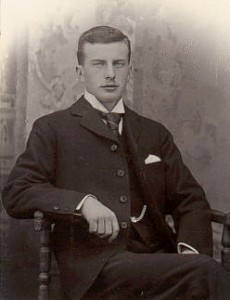 It is an undeniable irony of life that, despite his many blessings, man is an ungrateful brute, finding handicaps and obstacles in those things which ought to bless him most. The wealthy man, comfortable in his great house, with his soft furnishings and glowing hearth, is rarely anything but clueless to the plight of the poor and needy. If a man wants for food and raiment, ought he not to work for it? There are jobs enough, surely, our man of wealth and wisdom declares from the chair he has not left all day.
It is an undeniable irony of life that, despite his many blessings, man is an ungrateful brute, finding handicaps and obstacles in those things which ought to bless him most. The wealthy man, comfortable in his great house, with his soft furnishings and glowing hearth, is rarely anything but clueless to the plight of the poor and needy. If a man wants for food and raiment, ought he not to work for it? There are jobs enough, surely, our man of wealth and wisdom declares from the chair he has not left all day.
Even modern conveniences, when they have outlived their novelty, become a source of irritation when they fail us in their obligations. We have employed them, paid good money for them, ought they not to work as they were designed to do?
The weather, as mundane a thing as can be imagined, yet manages to vex our lives as few other things can. The sun that makes it possible to grow our vegetable gardens and to take our vacations to seaside towns, is often too glaring or too warm. Conversely, the rain that waters the crops, that fills the rivers and streams, ruins our plans and dampens our moods.
Our five senses, likewise, are blessings of which we are rarely mindful, save when we cannot use them to their best advantage. We curse our noses for the colds they catch, our hands for the injuries they suffer, our ears for the sounds that annoy us. The seeing man is often blinded to the subtleties of his environment by the obvious. He takes what he sees as truth and rejects what might lay beneath the surface. A beautiful house is more desirable than a humble one, however inconvenient it may be. A beautiful woman, likewise, far more suitable than she who, though clever and resourceful, has less to be proud of in her appearance.
Those five senses (though some may argue six), while so essential to our lives, are things we too often take for granted. Is it possible that one, being deprived of a part of his natural senses, might appreciate them all the more? Might he have a sweeter understanding of life and its hidden meanings?
Perhaps.
Perhaps not.
* * *
In a large suite of rooms in a sprawling country house, sat such a man as we might put these questions to. At the moment we join him we see that he is annoyed to distraction by the apparent lack of urgency conveyed by the firm pulling of the chord to the bells that are attached at its furthest end. In short, his servants are too slow. But this is only a part (though admittedly the greater part) of his anxieties. Other considerations circumstantially have added to them, for the weather, too hot yesterday, is dreary and damp today. A strange dog has found its way onto the property and will not leave off barking. His ears are ringing and his head has begun to ache. His tea, now cold, has too much lemon. And on top of all this, he suspects he is coming down with a cold.
As to his sight, he cannot complain. That is, he has no new complaint to speak of. Arthur Tremonton was born, to his mother's shame and his father's embarrassment, blind.
By his staff, Arthur might have been described—were you to ask them, and assuming they were inclined to oblige—as a man of better than average looks. His hair was fair and grew thick upon his head. His eyes bore no evidence of his malady save in their unusual paleness, a liquid blue that appeared almost white. He was tall, lithe and elegant, well dressed, well groomed and immaculate in speech if not entirely in manner. And, perhaps most significantly of all, he was well educated, which was an extraordinary thing considering he had never had a single day of school. No, he had lived his life in this house, confined, almost exclusively (at first by the dictates of his parents, now dead, and then by habit) to an upper suite of rooms. He had been provided with tutors, naturally, but it was not until he had inherited his father's library, and the vast collection of books within it, that his education ventured into anything nearing higher learning. The deficiencies consequent of an education directed by a too protective mother and an emotionally absent father were more than made up for in the years that followed their passing.
Of course it was not the library alone Arthur had inherited, but the house, as well as its large park, its ample staff, and even, to his great fortune, his father's aged valet. Blind as he was, Arthur could not read, but he could hear, and he could remember, and he could understand like few others. It is true what they say, a deficiency in one sense will be made up for by those that remain. He had an almost supernatural gift of recollection, a keen comprehension of concepts, histories, theories and philosophies he could only experience in his mind. It was certainly a fortunate thing that Arthur had been born to money and position, for, at the age of seven and twenty, he could apply himself to no more practical occupation than that of a perpetual scholar. He had no skills to speak of that were not of the cerebral persuasion. Had he been born a poor man, a mill worker, or a printer, a farmer, perhaps, he would have been at the mercy of an unforgiving world. What hardships he would have had to endure! He could not imagine it. But then he never tried. A man's hardships were his own business. Arthur had his own trials, and they were quite enough.
Where was Mrs. Pritchet with his tea! He rang the bell once more.
Some, he knew, made themselves burdensome, and with far less reason than Arthur possessed. And yet hadn't he made something of his life?
Again, he applied his hand to the bell cord. Harder this time. Surely it was working well enough.
He needed no one. (Which was perhaps a good thing as he had no friends.) And he had money enough to keep him quite snug and secure for the remainder of his life.
If only the staff would mind their duties! He pulled the cord again.
He would not make a nuisance of himself for the world! Such were better off dead. He would bother no one by his infirmity. So why was it that the charity ladies must keep coming? All others had learned by now not to bother. Their efforts were wasted to extract money, or to plumb the depths of his soul, or his intellect. He was not a man to entertain, or to keep up pointless conversation.
Was he lonely? Well, yes. Of course he was. But he valued his privacy and solitude more than he did company, who could rarely keep up conversation, were invariably stupider than he and could only talk about the things they saw and the places they went, as if they meant to brag of the talents they possessed and of which he had been born deficient. It was, in truth, nothing more than an insult to his impairment. He was blind! Was he ever going to cease to be blind? No! Would he ever be able to embark upon such adventures on his own? Of course not! So what use was there in discussing them? Try as a man might, Arthur could not be made to understand what a banana tree looked like, or an elephant or the ocean. The phrases 'large as a house', 'fast as a horse', 'grey as the sea'… these meant nothing to him. One cannot comprehend the size and shape of a buffalo if one has not seen it for oneself. One cannot describe the shades of the dusk-lit sky if one has never seen colour or shade or even vast and open space. It is impossible. And it is insulting! And he did not cower in telling them so.
Wisely, and mercifully, these visitors had ceased over time to come at all. All but the wretched, annoying, supercilious young women of the Ladies' Charitable Aid Society! They would come this very afternoon, despite a grumbling sky and the rain that tapped at the windows. They would come. They always came when he wished most to be left alone. Just see if they didn't!
***Blind is a soon to be published novelette. More info will be forthcoming. Stay tuned.***
January 16, 2012
May I introduce…
My illustrator, my friend and a source of constant support and encouragement…B. Lloyd. This is a woman to whom I owe a great deal. She is not only an amazing artist, but also a writer herself, and I'm anxiously looking forward to the publication of her novel, Greenwood Tree. (Date yet to be announced.)
I'd also include a link to her newest short story, which I thought rather superb, especially as it features Greenwood Tree's own Julia.
Reading before you write . . .
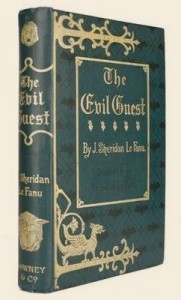 After trawling for months through writings, both published and non, by present day authors, I begin to find stagnation setting in; from the very snazzy to the very humdrum, there is a common thread running through, a streak of sameness, which makes me wonder how much publishing and publishers actually influence modern writers by their perceived 'demands' or lists of do's & don't's.
After trawling for months through writings, both published and non, by present day authors, I begin to find stagnation setting in; from the very snazzy to the very humdrum, there is a common thread running through, a streak of sameness, which makes me wonder how much publishing and publishers actually influence modern writers by their perceived 'demands' or lists of do's & don't's.
I pick up a Sheridan le Fanu, one I haven't yet read, The Haunted Baronet, and am transported :– yes, it is another world, the past, yes, it is another universe, the paranormal – but so are many books written now. Yet his voice struck me as fresh and vital in a way that all those others writing now do not, or cannot. His imagery, however contrary to the guidelines (rules for some) laid out, down, upon us by would-be guru scribes, flashed images across my tired brain that the present day ones could not. He was not writing outside of his own contemporaries ; he was not resorting to gimmicks or games – he was writing well. And no, he is not staccato, Hemmingway-like, nor vague and missing punctuation, Joyce-like (and many other examples, but this is not intended as a catalogue).
Reading a classic author from the past (from at least a hundred years ago, that is) gives us the opportunity to time travel. We get to see speech patterns, social customs, mores, attitudes, highs and lows, problems and solutions of the period in the flesh, so to speak. Any writer of historical fiction wants to read them, partly to get the vocabulary right (hardly anyone has ever really said gadzooks anywhere, it transpires) and surely to get the background, atmosphere and general feeling right. Any writer wanting to write sensational fiction will surely want to read Wilkie Collins as well as Bram Stoker, most writers wanting to bring in social commentary, both Dostoyevsky and Dickens, and so on – and not necessarily only the top classics; even the very mediocre ones can teach us something , if only on how not to write it.
Where I felt so many of the texts I had been looking at were failing to make the mark lay perhaps in the authors trying so hard to avoid clichés 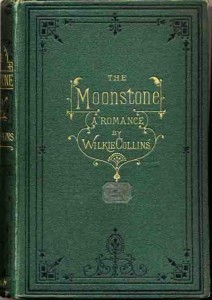 that they often end up sounding exactly alike one another, sans ton, sans voix, sans anything very much – rather the literary equivalent of walking around a stage, trying desperately not to bump into the furniture. If writers don't read (and I mean read books printed more than thirty or forty years ago . . .) and in great quantity and variety, how can they develop a voice that is not inevitably resonant with comic book speech, and so called 'pithy' language (because they think swearing gives them street cred), the inevitable drone of the uninventive, the uninspired and the uncreative ? How many more are there going to be, pounding out on keyboards simply because they can, enforcing the idea in the minds of new generations of readers that there is only one way of expressing oneself, when in fact there are many ?
that they often end up sounding exactly alike one another, sans ton, sans voix, sans anything very much – rather the literary equivalent of walking around a stage, trying desperately not to bump into the furniture. If writers don't read (and I mean read books printed more than thirty or forty years ago . . .) and in great quantity and variety, how can they develop a voice that is not inevitably resonant with comic book speech, and so called 'pithy' language (because they think swearing gives them street cred), the inevitable drone of the uninventive, the uninspired and the uncreative ? How many more are there going to be, pounding out on keyboards simply because they can, enforcing the idea in the minds of new generations of readers that there is only one way of expressing oneself, when in fact there are many ?
B's original post, as well as her lively and informative blog, can be found here.
Don't forget to check out B's short story! To learn more about B's artistry visit her website. Learn more about Julia in B. Lloyd's novel, Greenwood Tree.
January 15, 2012
The Truth About the Pop Tarts
No, this isn't an expose' on how Kellogg's brand of toaster pastries will kill you because of the manufactured sugar replacers and toxic preservatives in the artificial fruit filling and suspiciously always moist crust.
What it is, is a confession.
We buy the big boxes. You know the ones you get at Costco? The four-pack of 36 count? The BULK size that are meant to last through the nuclear holocaust? Yea, those ones. Well…those last about a week in my house. Why? Is it because we eat them three meals a day? No, they're just for breakfast, silly. Is it because everyone in my house loves them so? No. In fact I'm the only one (usually) who eats them.
The truth is…I have six to four a day.
OK, ok, not EVERY day. But when I make them, I make MANY. And here's why.
1) First I turn the broiler on. Yes, that's the broiler, as in OVEN.
2) Then I tear off a square of foil wrap.
3) I place the pop tarts on the foil and then,
4) carefully place them in the oven.
5) Then I go check my email.
6) Not until smoke begins to billow out of the oven do I remove the pop tarts from said smoking oven.
Which means I must repeat steps 2-5. If I were smart, I'd stop at step 4, but I'm a woman who likes to learn things the hard way.
When the smoke is once more billowing from the kitchen and the fire alarm is screaming, I take these out, too.
Then I follow steps 1-4 again, this time determining to wait in the kitchen, where I must entertain myself by either pacing the kitchen floor, checking the fridge for possible lunch options, or dancing to the music that plays incessantly in my head. (Today it's Panic at the Disco, the entire Vices and Virtues album.)
I also do a lot of peeking into the oven.
When the pop tarts are nice and browned and just beginning to bubble on top. I take them out.
There! Cooked to perfection.
January 9, 2012
Interview with Rebecca Lochlann
I've never yet done an interview on my blog. Mostly because, these past several years, I've been working too hard on my own manuscripts to pay attention to the books being published now. But I recently decided to amend that. I've had the privilege of getting to know quite a few really talented authors, and, consequently, I've had the opportunity to read some really great books. The first of which, was Rebecca Lochlann's The Year-god's Daughter. I loved it so much, I begged her to let me do an interview with her, which she graciously agreed to do.
But first, a little about the book.
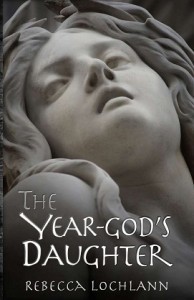 Aridela is meant to be a priestess, to save herself for no man, and to become an oracle, dedicating her life to Athene. Only she doesn't want to.
Aridela is meant to be a priestess, to save herself for no man, and to become an oracle, dedicating her life to Athene. Only she doesn't want to.
Iphiboë is a princess, destined to become the next queen, to carry on the royal line, to marry and to sacrifice her husband to the Year-god. Only she doesn't want to.
Aridela's birth heralds a time of change, but those who love her are determined to protect her. In protecting her, are they not defying the Goddess's will? All that they understand and think they know is challenged when the sons of the Mycenaean king come to call, with aspirations for the Cretan throne, and for Aridela. Can they have both? And what happens when their year is up? Will they even survive to be the conquerors they are determined to be? And, of course, there can be only one.
As I was reading the book, I kept saying to myself, "A country where the women rule, where the men sacrifice themselves to love the Queen for one year… What a great story that would make! Oh, wait, that's what I'm reading!" And so, I have to ask, what inspired you write this book?
I had a spark of an idea way back in the late eighties, early nineties. Pure epic fantasy, the kind where the reader is taken to a make-believe world complete with your classic "world-building" aka Tolkien, LeGuin, Alexander, etc. I wanted a female-run country sitting smack dab against a male-run country. That's about as far as my outlining went. I started writing the story (longhand, pencil, notebook pape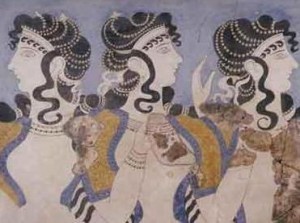 r—didn't have a computer yet), even drew a map complete with little triangle mountains and winding rivers. At this point I had no more of an idea of Bronze Age Crete than anyone else who has not specifically studied Greek history. I didn't know anything about the "Minoans," and, of course, during the years I was in school, there would never have been a whisper of matriarchal societies, even if such a thing were provable fact. Anyway, there I was, happily writing my fantasy when I happened across the book Moon, Moon, by Anne Kent Rush. It was in those pages that I first learned about the Crete one can find in my story, and it got my curiosity piqued.
r—didn't have a computer yet), even drew a map complete with little triangle mountains and winding rivers. At this point I had no more of an idea of Bronze Age Crete than anyone else who has not specifically studied Greek history. I didn't know anything about the "Minoans," and, of course, during the years I was in school, there would never have been a whisper of matriarchal societies, even if such a thing were provable fact. Anyway, there I was, happily writing my fantasy when I happened across the book Moon, Moon, by Anne Kent Rush. It was in those pages that I first learned about the Crete one can find in my story, and it got my curiosity piqued.
I found out that there actually was a place, in our world, a mere few thousand years ago, where women may well have run things and commanded the respect of nearby male-ruled countries. There are signs pointing to a possible matriarchal setup on Crete, but no one can ever really know for sure about these things. (The Cretans' written records have yet to be deciphered.) This is why I label my genre as "Historical Fantasy," along with "Mythic Fiction."
I don't claim to have some kind of inside knowledge about how this civilization operated or who ruled it, but the more conjectures I read by various authors, historians, and archaeologists, the more I realized, with growing excitement, that I had leeway, the freedom to merge my fantasy story into the history and myths of a real place. This was so much more intriguing than pure fantasy, because this could really have happened this way.
So what kind of research did you have to do? I imagine it took years and years.
The Bronze Age segment of the series took about 15 years of research, since I was starting from scratch. I read and read and read….and read. In those days, it was hard to find books on the subject. They were all out of print and there was no Alibris.com, no Google, not even a Yahoo. The Internet was still in its infancy. I had to scour used bookstores, and the books I found or ordered were often extremely expensive. I sometimes I borrowed books from the library and transcribed the information I needed.
How much of the story is based on researched fact and what is your own invention? Because it's difficult to tell, which I think is a characteristic of an author who knows how to weave their research in without showing it off.
 It's all based on researched fact. But many of the archaeological books I read sent my mind on an exploration of new paths. For instance, I realized that just because Arthur Evans coined the term "Minoans," which he borrowed from famous Greek myth, didn't mean that's what the people of Crete called themselves. As I delved deeper, I realized the whole "King Minos" idea was also a later invention, as is so very much of what has come down through history, all very piecemeal, and mostly from a much, much later time. No one really knows where the term "Minos" originally came from or what person it was attached to, but Robert Graves conjectures it was a title held by a female, and the king of Crete had to acquire it through her. Other writers (Jacquetta Hawkes, for one) support this theory. I conceived the idea of "Minos" belonging to a sacred woman on Crete. It made sense that it would belong to a high-ranking woman. I could have taken this in many directions, but I chose to give it to the oracle, the high priestess—not of the royal family, yet just as important as they—maybe more so. I've tried to return life to the older beliefs and myths: those that hang by an unravelling thread on the tapestry of our history.
It's all based on researched fact. But many of the archaeological books I read sent my mind on an exploration of new paths. For instance, I realized that just because Arthur Evans coined the term "Minoans," which he borrowed from famous Greek myth, didn't mean that's what the people of Crete called themselves. As I delved deeper, I realized the whole "King Minos" idea was also a later invention, as is so very much of what has come down through history, all very piecemeal, and mostly from a much, much later time. No one really knows where the term "Minos" originally came from or what person it was attached to, but Robert Graves conjectures it was a title held by a female, and the king of Crete had to acquire it through her. Other writers (Jacquetta Hawkes, for one) support this theory. I conceived the idea of "Minos" belonging to a sacred woman on Crete. It made sense that it would belong to a high-ranking woman. I could have taken this in many directions, but I chose to give it to the oracle, the high priestess—not of the royal family, yet just as important as they—maybe more so. I've tried to return life to the older beliefs and myths: those that hang by an unravelling thread on the tapestry of our history.
I find action scenes really difficult to write. In the labyrinth scene, in particular, there is a sword fight that I found utterly brilliant. How did you come to write it so well? Did you watch sword fights? Do you simply have a very exacting imagination? Or, like other authors I have known, did you reenact a battle scene?
It wasn't always that way, to be honest. I, too, find fight scenes almost impossible. But a friend who read the book before it was published was honest enough to tell me that my fight scenes were lacking. I threw myself wholeheartedly into correcting this problem. I studied fighting scenes in movies, in books, and I made use of my husband's extensive knowledge. Yes, we did enact a few punch-outs. It helped me visualize exactly what could happen. With these assists, I was able to put something together that worked.
You have some very interesting characters. Menoetius, for instance. He's sort of a dark horse. Did you have a purpose in making him disfigured? Was it simply to serve as a disguise, or is there some underlying symbology there?
Ah, Menoetius. He is a classic reluctant hero. But that's where the obvious ends. There is more to him than meets the eye, more than he himself knows at this point. The Year-god's Daughter is as much a "coming of age" story for Menoetius as it is for Aridela. This youth from Mycenae begins life blessed in a way, for he is handsome, and given privileges most children of slaves could never hope to experience. Everything changes later, when he is forced into life without beauty, without status, without hope and from that place…he is honed, transformed.
This is complex plotting, then. Where does that need to tell a complex story come from? Is it from studying literature, or perhaps the huge tomes written in the tradition of epic fantasy?
It just unfolded that way as I was writing. I began with a plan of simple, unrelated stories, but that's not what ended up happening. I just got pulled deeper and deeper into these characters' lives, and through them, into the lives of people as yet unborn. I wanted this ancient story to resonate with modern day people, and future generations.
It strikes me as interesting because I think modern plots are quite simplistic. Perhaps it's why they can so easily be fit into 100,000 word limits. I struggle with word limits, but I don't think it's so much about how many words, as it is about how much of the story to tell. Would you agree with this? And what do you make of the seeming appetite for short, concise, easily digestible books in our digital age? Is there room, do you think, for the classically formed saga?
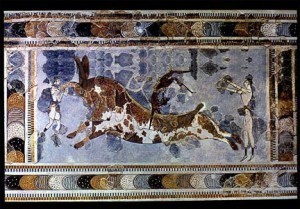
Gosh I really hope so, but I really don't know. I fear that attention spans are growing shorter by the year, and that there may come a day when no one would pick up a thick book. I hope that doesn't happen. I grew up with big books and from that place, I was shaped as an author. Although I have bowed to the need for books to be shorter, I still am compelled to write a big, epic story, to unravel it like a ball of yarn, to tangle readers up in it so that they can't escape, and hopefully don't want to. I don't necessarily want to write a "historical," a "fantasy," a "romance," or fit myself into other labels. I want to write a story, in the old sense, a tale that draws in readers, sits them in front of a fire, wraps them in a blanket and keeps them there while the world goes by, unnoticed. That is my true goal, and that can't be compressed into a certain word or page count.
You chose to break yours up. How do you feel about that decision now? I chose to keep my first two together, as the division between them is less clear than in those that follow, and because I saw mine as one thick book, but I do get the feeling that readers want to get through books more quickly, whereas I like to linger with the characters longer, to form a relationship with them and to learn something from them, if I can. Breaking a book up into a series is one way around this. Are you happy with your decision to go this route?
If I'd felt I had the freedom to do so, and that it would have been accepted by most readers, I would have put the entire Bronze Age part of my story into one book, as it was originally intended to be. But since it didn't seem like a good idea, I tried to break it up at strategic points, where the reader is hopefully happy with the ending, yet still looking forward to the next segment.
Do you write simply for entertainment's sake, or do you have a higher purpose?
My goal, after writing a story that captures a reader's imagination, is to return this mythical, historical woman/ideal to human awareness, to give her life again, reminiscent of what she enjoyed thousands of years ago.
Do you know your characters before you write them, or do they develop on the page?
Everything revolves around Aridela, and always has. She is the Maiden, the Mother, and the Crone, she who is visible from afar, and has profound tasks to accomplish. She is the collective soul of all women, and carries the wounds of every woman within her. Chrysaleon has always been clear as well, but Menoetius is much more complex, mysterious, and difficult. He hides himself: he makes me work at drawing him out, and I'm not completely sure where he will end up in the editing process, frankly.
Do you outline? Or are your stories more organic than that?
I wrote the first several books (which have since been split up,) by the seat of my pants, through inspiration, dreams, and research. When it came to the book containing the series climax, I tried outlining. I liked it. I recommend outlining. It helped me get started, and kept me from going off on tangents.
Now and then, as I read, I found certain themes relevant. Was that your intention, or is it simply that history, and historical themes, repeat themselves through the ages?
 It struck me early on in my research how the year-god on Crete was honored then ritually slaughtered, only to rise again in the spring. I saw many beliefs I'd thought of as uniquely Christian, not just on Crete but elsewhere, like ancient Britain, who also utilized a sacrificial king, all long before Jesus came along. There is much to learn about ancient beliefs and religions, and how they relate to present day, and how they actually formed a base for present day beliefs. There is a very ancient theme of sacrifice in this world, resurrection, and godhood and how imperative it is to the well-being of ordinary mortals. Another theme I wanted to highlight was how closely the fertility of the land was intertwined with the fertility of women: not too long before the time period in which my story takes place, the theory was that women could get pregnant from the north wind (Boreas), or from eating beans, or from other solitary endeavors. The man's part was accepted, but wasn't the only way. Some evidence suggests that for thousands of years, women routinely journeyed to temples, where they offered themselves in sexual acts that everyone considered sacred and holy, rather than degrading or promiscuous. Children born to temple maidens were revered. Am I saying this is what happened? No. I'm saying it could have happened, and that's what makes it all so fascinating to me—something worth writing about fictionally—an alternate history that might be real.
It struck me early on in my research how the year-god on Crete was honored then ritually slaughtered, only to rise again in the spring. I saw many beliefs I'd thought of as uniquely Christian, not just on Crete but elsewhere, like ancient Britain, who also utilized a sacrificial king, all long before Jesus came along. There is much to learn about ancient beliefs and religions, and how they relate to present day, and how they actually formed a base for present day beliefs. There is a very ancient theme of sacrifice in this world, resurrection, and godhood and how imperative it is to the well-being of ordinary mortals. Another theme I wanted to highlight was how closely the fertility of the land was intertwined with the fertility of women: not too long before the time period in which my story takes place, the theory was that women could get pregnant from the north wind (Boreas), or from eating beans, or from other solitary endeavors. The man's part was accepted, but wasn't the only way. Some evidence suggests that for thousands of years, women routinely journeyed to temples, where they offered themselves in sexual acts that everyone considered sacred and holy, rather than degrading or promiscuous. Children born to temple maidens were revered. Am I saying this is what happened? No. I'm saying it could have happened, and that's what makes it all so fascinating to me—something worth writing about fictionally—an alternate history that might be real.
It's perhaps strange that I empathised with Iphiboë as much as I did. She reminds me, in some ways of my Imogen. What is her background? Can you tell me more about her?
Iphiboë has a very special reason for the way she is. The name Iphiboë means "Strength of oxen." One might wonder if this name simply doesn't work attached to this seemingly timid girl. But, as with most of the characters in my series, things are not quite as they appear. Iphiboë takes center stage early on in the second book, The Thinara King. More than that I probably should not say.
What is your publishing schedule for the rest of the series?
I hope to have the second book, The Thinara King, out in April, 2012. The third book, In the Moon of Asterion will probably follow it in the fall. Then I take readers into something completely different, yet I promise my heroes will still be there.
You can find The Year-god's Daughter at Amazon 0r Barnes & Noble.com. Learn more about the author at rebeccalochlann.wordpress.com
January 2, 2012
Happy New Year!
I don't know if it's the case with other writers of Historical Fiction. Perhaps my eccentricities are more extreme than I realised, but it 's true that there are times when I am so completely immersed in the past that I emerge into a world a little shocking, at least disorienting.
It was last year at this time that I was sitting before my bedroom fire, working on something–Moths, presumably, and the thought (so pleasing it was) came to me: 2012 is going to be such a stellar year! Filled with success and dreams fulfilled, goals at long last achieved.
And then my heart sank. It was only the eve of 2011 and I had twelve more months before I could look forward to that happy premonition. A wise person would have advised me to make the most of those months. I did try. And there is something to show for it, after all. Moths is published, and selling. I have at last moved. And yet… There is still much to be desired. Moths is hardly the blockbuster I had hoped for (though it's still early.) My house is still on the market (please won't someone buy it?). And each of the houses we had intended to buy (I think the count is up to eight now) have fallen through. All these things, with a little luck (I'll call it Faith) are fixable. Some things, however, cannot be changed. The death of my brother cannot be made up for, unless, of course (I do still believe in miracles) others will learn from the lesson of his untimely passing, and change their lives accordingly.
Suffice it to say, 2011 was hardly a great year for me.
However, 2012 is here at last and I have to say, I am optimistic. No, that is too small a word for the way I feel about the possibilities ahead of me. I am quite certain that this year will be one to top any other of my recent experience. 2009 was pretty extraordinary. I took two trips to the UK, hobnobbed with some amazing authors, met some new friends (and pretty terrific ones) for the first time, and still there was disappointment. My successes that year were founded on vanity, insecurity and a need to feel a part of something bigger than myself. I hadn't earned it, and so, in consequence, there were blossoms but no fruit on that tree of opportunity.
Things are different now. I mean to exercise Faith. A verb. And if 2012 isn't a screaming success, it's because I did not do my part to make it so. Those lessons of 2009-2011 were fairly hard learned, but they were learned (expletive removed)!
And to ensure that the new year turns out to be all I hope for, my resolutions, I hope, will at least make it more likely that the happiness and success I look forward to enjoying will come, not to pass, but to be.
And so, I present to you, my resolutions for 2012.
Cry of the Peacock is due out in the autumn. Originally it was scheduled for release in the spring, but I'm determined not only to see it published, but to see it PERFECTED. And so I've requested an extra six months from my publisher. They were generous enough to grant it. (And my illustrators and editors were relieved to have the extra time.)
Get in shape!
Perhaps due to all the time spent at my computer, I'm in the worst shape of my life. I'm sending out not so subtle hints that I want a bicycle for my birthday. I mean to get back in shape. At least to be in better shape, which, considering how I feel and look at the moment, shouldn't be too hard to achieve SOME improvement. (I do believe in setting realistic goals, you know.)
Get involved!
To repent for my inexhaustible head-downedness this last couple fo years, I will repay those to whom I owe debts, those, specifically, who have supported me and helped me to succeed in my goal of publication.
Exercise faith!
My faith has grown weak in the last few years. I have relied less on my intuition and have tried to be more logical and rational. I'm an intelligent woman, but my decisions are best made intuitively. I vow to do what it takes to prepare myself to be more in tune to intuition and inspiration. I will trust more in my intuition this year.
Write more short stories!
I will become adept at writing short stories and concise plotlines. I would like to publish some short stories and to learn how to write books that are not quite so HUGE. (Though huge was the goal to begin with, they have proved cost prohibitive. And readers seem to have short attention spans these days.)
I'm going to get it together. I am. I have begun a system of calendaring that takes into account my writing/editing/marketing schedule in tandem with my more personal responsibilities and interests. And I think if I do not allow myself to spend more time on me than others, I won't be so prone to losing touch with the here and now, which I think is the crux of my organizational woes.
Sort out my living situation!
I am going to sell my house. And I am going to buy a house that inspires me and makes me happy and I'm going to move for the last time in my life. (I hope.)
There are some others, too personal to discuss here. And yes, this is a lot of resolutions, but I've rather let myself go of late, and I can feel the differences in me. And I do not like them. But I expect great things this year, and of whom much is given, much is required.
I do hope that 2012 proves to be a watershed year for you, as well. I hope all your dreams and aspirations come true. Success happens in groups and competition has no place outside of sports and strategy games, of which creativity has no part. Thank you, readers, friends, and loyal supporters for all you've given me. I'm more grateful than I can say.
Welcome 2012!
Now lets get on with it, shall we?
December 20, 2011
Home for Christmas ~ A Ghost Story
London 1914
Tinsel hung on the tree, the kind that catches between a cat's paws and is impossible for a human to gather up again. Which is what makes it so fun—she bending over, breathing hard, muttering to herself, grasping at the elusive strands. Scolding me all the while. And I, watching safely from beneath the sofa.
Two stockings hung on the mantelpiece. One for Lillian. One for Raymond, due home any day. If he should come tonight… It meant sharing the bed, but if it made her happy, I would make the sacrifice. We cats are selfless like that.
Dinner was in the oven. A duck rather than a goose. It was a simple matter of economy, though goose was the tradition. For the two of them, duck would do. And either was fine by me.
Lillian had dressed her best, yet she was anxious and close to tears. Those tears would find their way whether or not he came. But he would come if he could. If the boat should arrive in time. If he could get a train. On Christmas Eve.
At ten she carved the duck, too hungry to wait any longer. She set a plate for me on the floor. It was my habit to take the proffered bits and eat them beneath the sofa, leaving behind whatever didn't quite suit my taste. I remained by her side tonight. My own little Christmas gift.
It was nearing midnight when the telephone rang. Another product of ruthless scrimping and saving and sacrifice. But if it meant hearing his voice… It startled us both and I'm afraid I may have drawn a bit of blood as I jumped from her lap to the floor. She was up in a flash, though, and did not seem to notice.
"Hello? Hello, Raymond, is that you, darling? … But where are you? … You won't be home tonight, you say? … Yes, I am sorry to hear it. But I can be a good girl, and patient, just you see. … I love you too, darling. … Yes, I miss you too, darling. … Perhaps tomorrow? … What was that? I didn't catch that last. It sounded as if you said— … I don't understand." And she laughed a little, though nervously. "What do you mean I'll be home too? But of course I'm home, you silly boy. … You have to go? So soon? But Raymond— … What was that? … Oh yes, darling. A very merry Christmas to you, too. … I love you, darling. … Raymond?"
Then silence, for he had rung off already. She hung up the receiver and stood by the telephone a moment. And wiped her eyes.
What was the use in crying, after all? He was coming. Not tonight. But tomorrow, perhaps. Slowly, thoughtfully, she returned to the sofa, and sat. I resumed my place on her lap.
She stroked, and occasionally sniffed. Murmured now and then. Sniffed some more. But always stroked. And I purred. Another Christmas gift.
At last she lifted me and set me down, and I followed her to the little tree, so sparsely adorned, save for the tinsel. How I coveted that tinsel. But now was not the time.
Carefully she rearranged the presents, checked to be sure they were all there, straightened the bows and the ribbons and lovingly replaced them beneath the tree.
They had not been married a year when war broke out. He had signed up right at the start. There were no children, and so the responsibility seemed clear. She was heartbroken, but did her duty to God and Country, and sent him. Only she wished she had something to take her mind off her lonelier hours. That was when she had brought "Kitty" home. Not an imaginative name, I'll admit. But when one has been used to foraging in rubbish tins, eating odd scraps—mostly eating nothing at all—one does not begrudge something so insignificant, so temporary, as a name.
And so it was just she and myself. Alone together but happy in our way. And tonight was Christmas Eve. But he would soon be home.
Tomorrow, perhaps.
The clock chimed one. She returned to the tree and took up the one small package that had been especially sent. For her. She opened it and choked back tears as she gazed within. A ring. The one she wore had been bought second-hand, and had born a second-hand inscription. Their romance had been something of a whirlwind. An impulse, but a happy one.
"A new ring for our new life together," read the note.
Always. Your own R.C, read the inscription.
Tears streaming, she put it on. It shamed the other sadly, but she would not remove the first. She would wear them together.
He had been gone just four months. A long and lonely and torturous four months. But he was returning. He had been injured, quite seriously, they'd said. But now he was coming home! Though she was not, as yet, familiar with the extent of his injuries, whatever they were she would live with them proudly, knowing her beloved Raymond had done his best and that she had done her part. Supporting him then. Loving him now. Adoring him. Always.
When the clock struck again she arose and it was time for bed. I followed, for there was always a place for me there, where I was coddled and stroked through the lonely nights. And I purred and comforted in return.
The night passed. There was more sniffing. More tears. But not all of them sad. For he was coming home. Tomorrow, perhaps.
But it was tomorrow already.
The bell awoke us with a start.
"I'm coming," Lillian called as she tripped from bed (and over me). "Just a minute." And throwing her dressing gown about her, she rushed to the door.
The sight of the buff envelope stopped her cold.
Her hand shook as she took the telegram. She signed, paid the bob and closed the door again.
She stared at it a moment. And then, with trembling fingers, tore it open.
A gasp. Her hand flew to her mouth. A square bit of paper fluttered to the floor.
Regret to inform Captain Raymond Cooper died 10th December from wounds received in battle.
She was in the bedroom now. Crying. Muttering to herself. Looking for something to wear. Something quick. Now her stockings. Looking for shoes. I ducked to get out of the way as one flew across the room in her mad rush, then hopped up onto the bed to be near her. She didn't notice.
"It's not possible. He rang last night. I talked to him. It's a mistake. It must be. I must go sort this out. It must be a mistake!" And she began to cry anew.
She threw a coat around her and did not think to shut the door tightly as she ran out. I slipped out behind her. And followed.
"It's a mistake. It's a mistake," she said over and over as she walked—nearly ran. All the while sniffing, wiping her eyes. "Two weeks ago. It's not possible!" Running now. The telegram was in her hand, and she was going to sort this out. She was. She must. And there was no time to lose.
There wasn't much traffic today. It was Christmas, after all. But there were visitors arriving in horse drawn carriages. In motor cars. There were families travelling distances great and small to the homes of their mothers, fathers, sisters, uncles, grandparents. Wives.
A motor car blew its horn. Then screeched to a halt on the icy street. A thud. A scream.
Then silence.
"Get help. Somebody, quick!" Strangers' voices. Frantic in the cold. "We need help here!"
Raymond had telephoned last night. He was coming home. Today, perhaps.
And so was she.
But not to a brick row house in a humble London borough. She was going home to be with her beloved Raymond. Home. For Christmas.
December 8, 2011
Not my unfavourite things
I was just telling a friend I needed to post something new on my blog. I have in mind some very good ideas that I mean soon to put into fruition, but I'm still feeling a bit of that holiday laziness that comes over me around Halloween/Thanksgiving time. Anyway, I had finished off by telling this friend that blogging is not one of my favourite things. Which got me thinking about what my favourite things are. And so, in light of the last post on what I'm thankful for, and in anticipation of Christmas and the things I love most (and maybe want most) I present to you a list of my not unfavourite things. In other words…
My Favourite Things!
*In no particular order*
(it's interactive, so please click on the pictures)
November 24, 2011
An Attitude of Gratitude
In the U.S. our holiday season begins with Thanksgiving. It's a time when I realise I've not been as grateful as I could be. And so, in remedy of this, I offer my appreciation of all the blessings I am fortunate to count as mine.
I am grateful for…
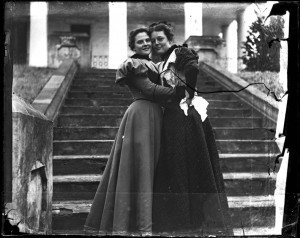 Good and constant friends. I have more of them than I deserve.
Good and constant friends. I have more of them than I deserve.
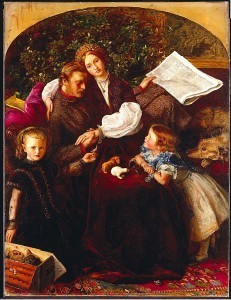 My family, these wonderful people with whom I am blessed to associate every day of my life.
My family, these wonderful people with whom I am blessed to associate every day of my life.
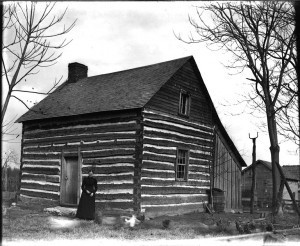 A home to shelter me, no matter how humble.
A home to shelter me, no matter how humble.
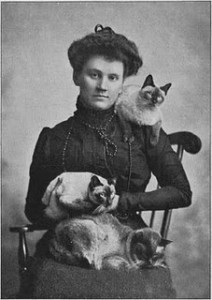 My many, many, (too many?) non-human friends. (Hey, they're never contrary and don't argue. That counts for a lot.)
My many, many, (too many?) non-human friends. (Hey, they're never contrary and don't argue. That counts for a lot.)
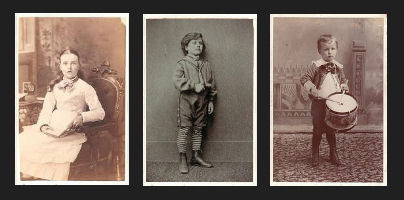 My beautiful children. What amazing people they are!
My beautiful children. What amazing people they are!
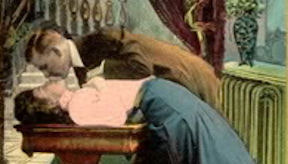 A little bit of romance, without which, my life would seem very dreary.
A little bit of romance, without which, my life would seem very dreary.
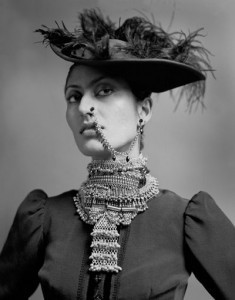 Different cultures to educate me.
Different cultures to educate me.
 Different ideas to challenge me.
Different ideas to challenge me.
 And the beauty that is all around me, reminding me how good life truly is.
And the beauty that is all around me, reminding me how good life truly is.
And most of all…a loving Heavenly Father who gives me all, even if it's not quite just when I want it.
Happy Thanksgiving.




